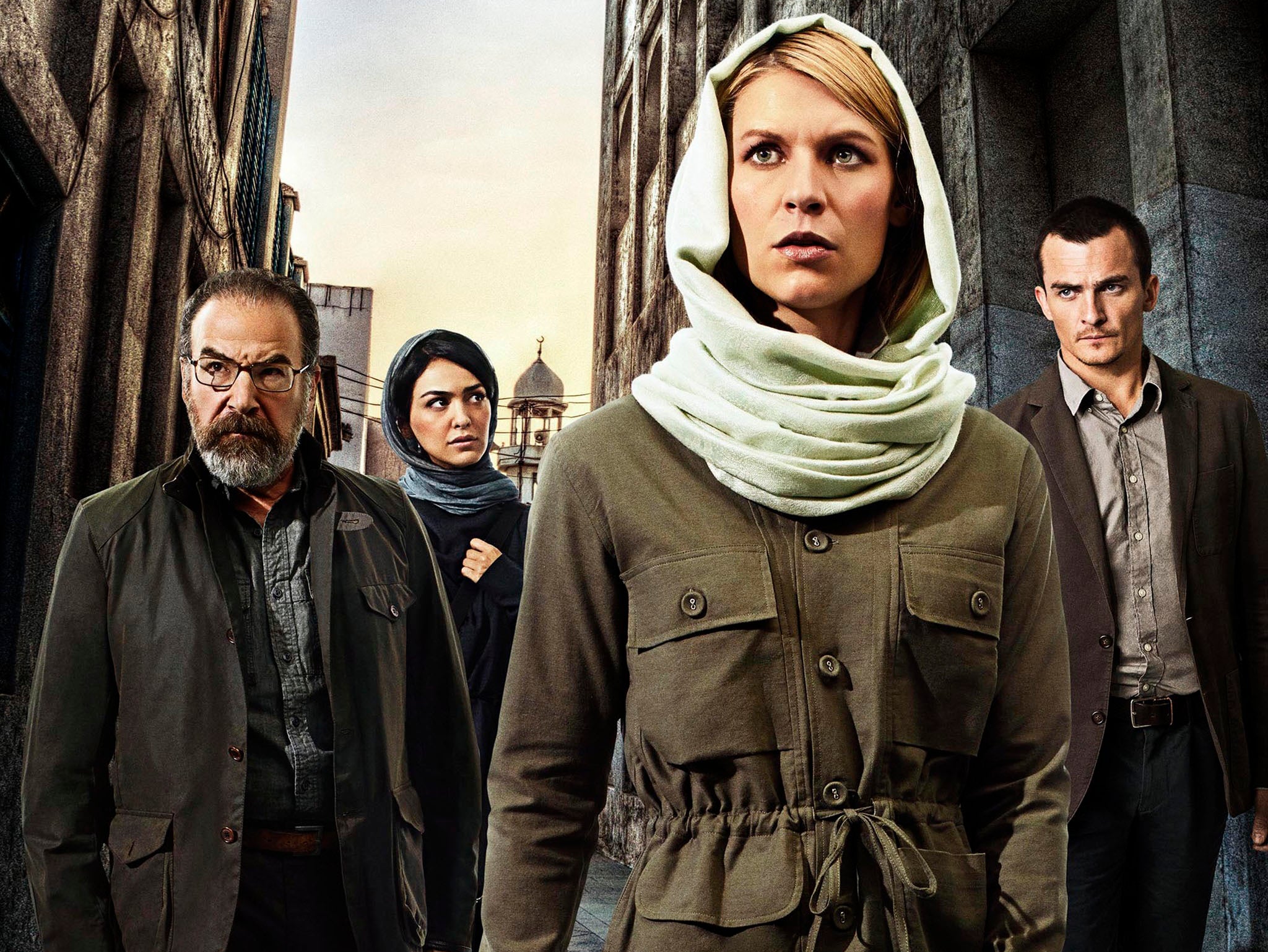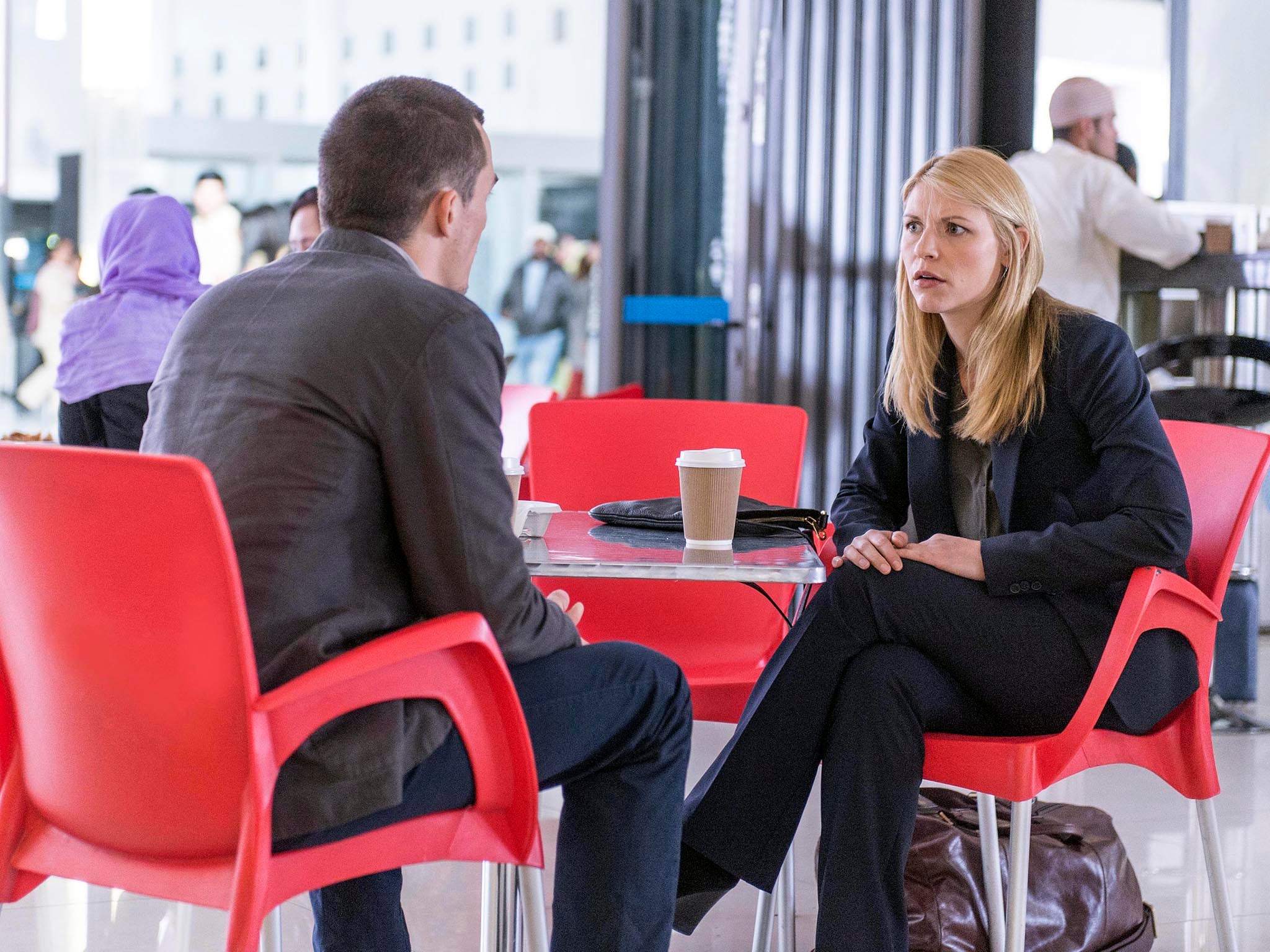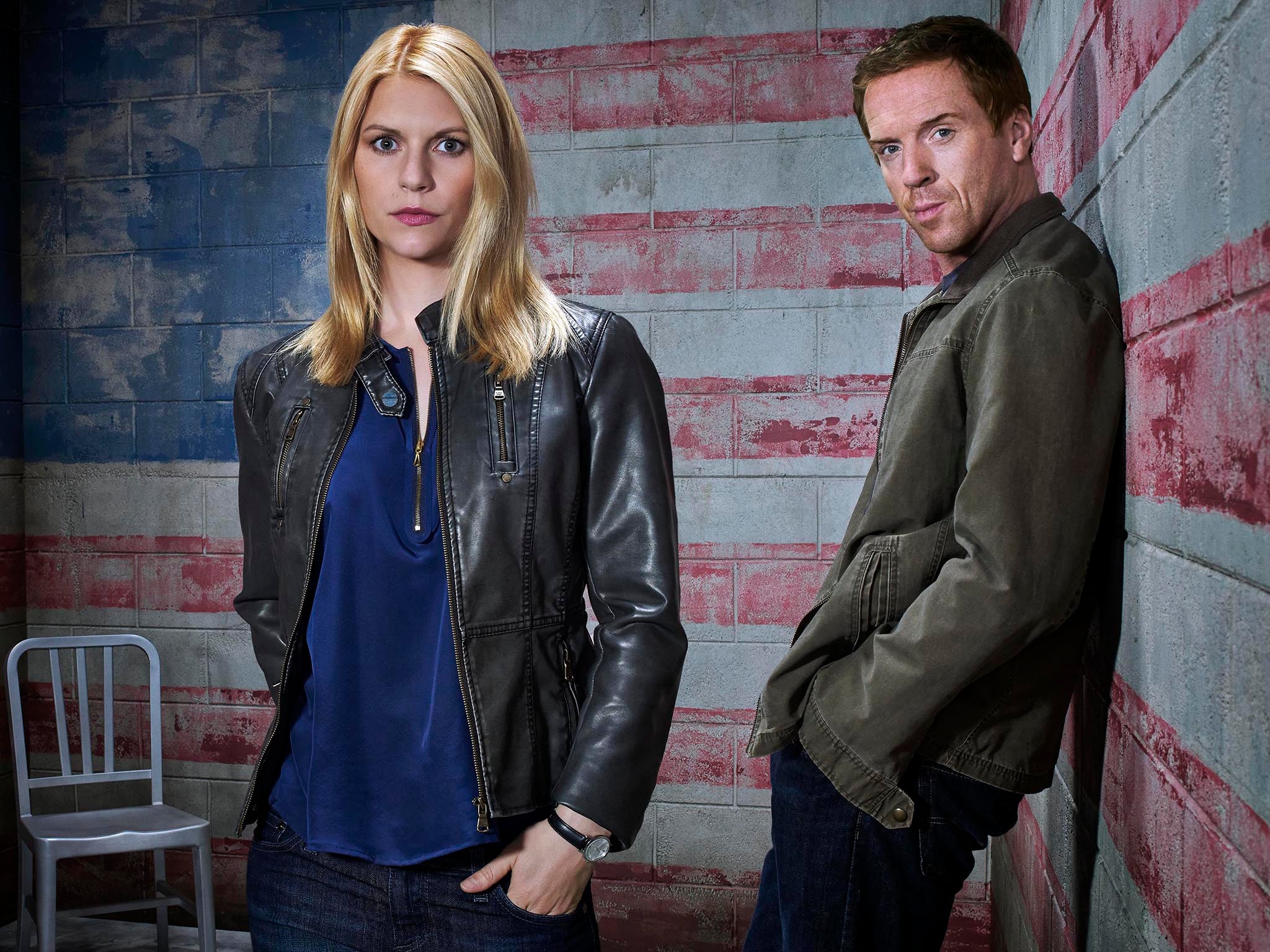Claire Danes interview: Can Carrie Mathison save Homeland series four now Brody's gone?
As Homeland focuses more on Danes' character in the new season, the creators are hoping for a resurrection in the show's fortunes

What happens to a hit show when you kill off the male lead at the end of the previous season?
That’s the question haunting fans of CIA spy drama Homeland, which returns to Channel 4 for a fourth series tomorrow.
When we last checked in on Claire Danes’s brilliant, bipolar agent Carrie Mathison she was watching in despair as her on-off lover Nicholas Brody (Damian Lewis) was hanged in front of a jeering mob in a square in Tehran.
As Mathison, pregnant with her lover’s child, watched his body twist in the air it was hard for viewers at home not to see Brody’s twitching corpse as an apt metaphor for a show which had started by offering a darkly entertaining view of a paranoid intelligence agency before rapidly disintegrating into an over-the-top mess with plotting so feeble that putting it out of its misery seemed like the only logical conclusion.
Well, hold the obituaries because it turns out that Brody’s demise might well be the best thing to have happened to Homeland since that first exhilarating season. The opening episodes see Mathison back in the field, working as the station head in Kabul, a position that puts her in charge of drone attacks. She’s working with the equally maverick station-head in Islamabad (a charismatic Corey Stoll) and ignoring fellow CIA operative Peter Quinn’s (Rupert Friend) attempts to humanise her. This is Mathison in high-functioning mode, teetering on the edge of possible burn-out but so driven that she is almost unaware of anything or anyone around her. In other words it can’t possibly end well.

“There’s a lot of pain lurking beneath the surface that’s she’s just not dealing with,” Danes said in an interview for 20th Century Fox, which distributes the show. “She’s always been very focused on her work but that’s even more the case and it’s taken to a greater extreme. Processing the death of Brody is a very complex grief to experience because she was culpable… she led him to his death. So she’s in a place where she’s very emotionally disconnected and not really able to face reality.”
For Alex Gansa, the show’s co-creator alongside Howard Gordon, putting the focus firmly back on Mathison was the natural progression. “We’d always intended to show Mathison in the field – it was supposed to happen in season two but the response to Brody was so strong,” he says. “While Damian is a huge loss, Brody’s death has brought a big chapter of Homeland to a close and forced us to push forward into new territories. Howard and I always envisaged Homeland as a show about one particular character, Carrie, and this season gives us a chance to go back to that.”
Putting Mathison back in the field has also paved the way for a new group of characters. In addition to Stoll’s wired station-chief we meet Aasar Khan, a decorated lieutenant-colonel in the Pakistani intelligence service played by Spooks’ star Raza Jaffrey, Martha Boyd the as-different-to-Mathison-as-you-can-possibly-imagine United States Ambassador to Pakistan, and Michael O’Keefe’s world-weary deputy station-chief.
That last character, a seedy cynic who appears to have wandered into the show by way of a Graham Greene novel, provides a refreshingly sardonic edge. Forget the sturm und drang of the Brody days; we are now in more ambiguous territory, a world where black-ops specialist Quinn is starting to question his motivation even as Mathison focuses on the job in hand to the extent of missing the wider moral picture.
“We were definitely going for a Greene feel,” admits Gansa, adding that O’Keefe turned up for his audition ‘in a rumpled linen suit that was right out of [Greene’s] The Heart of the Matter’. “One of the most liberating things about resetting the show was the fact that we got to introduce a whole new cast of characters and give a different focus. The focus is now on America in Afghanistan and looks at how agents in the field are dealing with the drawdown in the region and what’s going to happen when the troops leave.”

Watch Apple TV+ free for 7 day
New subscribers only. £9.99/mo. after free trial. Plan auto-renews until cancelled.
ADVERTISEMENT. If you sign up to this service we will earn commission. This revenue helps to fund journalism across The Independent.

Watch Apple TV+ free for 7 day
New subscribers only. £9.99/mo. after free trial. Plan auto-renews until cancelled.
ADVERTISEMENT. If you sign up to this service we will earn commission. This revenue helps to fund journalism across The Independent.
Inevitably in such a high-pressure environment, mistakes are made. A key one in the first episode leaves a young Pakistani medical student played by Life of Pi’s Suraj Sharma caught between two sides and facing a difficult decision. “We wanted to look at the fall-out when the West projects their power into these parts of the world,” says Gansa. “Are we radicalising people by our presence? What happens once the soldiers have gone?” Was he concerned about current events in the Middle East making the show appear stale?
“Not at all. If anything I’m sort of relieved not to be doing a story that touches on the rise of Isis because I find what’s happening to be so profoundly troubling and violent that I don’t feel you could make a drama out of those events. The fact that we are telling an adjacent story allows us to comment on it more than if we were tackling it head-on.”
The change in pace has also led, perhaps inevitably, to talk of Gansa and Gordon’s other famous creation, 24’s action hero Jack Bauer. An early review in the Hollywood Reporter compared the two shows concluding: “...for the current version of Homeland action scenes rapidly intercut with political ruthlessness looks to be exactly what the show needs to sustain its worthiness.” Gansa concedes the point but adds: “Carrie’s not Jack. She’s still doing the day-to-day work of an intelligence officer. She doesn’t have a gun in her hand. It’s a very different vibe, more intellectual.”
For Danes her character’s appeal lies less in a Bauer-esque determination to save the world and more in her refusal to conform. “It’s really fun to play Carrie because she’s so unapologetic about striving for the things she wants,” she says. “So often women have to equivocate or put other’s needs before our own and she just doesn’t do that. She’s not defined by her sex, she doesn’t put up with shit. She doesn’t conform to conventional social standards. That’s very liberating.”

Amid all the field action it’s hard to remember that Homeland’s initial appeal lay in the way it brought the fall-out from foreign events back to American soil, a premise that made it appear fresher than previous spy dramas. With the Brody family out of the picture the “home” part of the show now falls on Mathison’s baby daughter (who possesses Brody-esque red hair). As most viewers will have guessed, Mathison isn’t the most maternal of women: indeed the opening episode suggests that she deliberately took the job in Kabul because she could “bring no dependants” with her, leaving her less-than-impressed sister bringing up the baby.
“Carrie’s rigged it so that she can’t bring the baby with her,” says Danes. “When’s she is forced to re-engage with the kid she fails miserably. I think it’s interesting to see a woman who doesn’t have maternal feelings towards her child and I think it will be confronting for a lot of people. We’re always testing audiences’ tolerance of her shortcomings.”
Indeed it’s arguable that for all the high-octane action, the tensest moment of the series occurs in the second episode when Mathison is left alone with her baby and the extent of her disconnect becomes terrifyingly clear. “Carrie does have a decided lack of maternal instinct but it’s also the case that her daughter is an emotional marker for her,” says Gansa. “She has yet to face her very real grief about what happened to Brody and how culpable she was and spending time with her child is a reminder of that.”
Nor should fans expect their heroine to be looking for love any time soon. “We do get a lot of feedback pushing for Carrie and Quinn to get together but while they clearly have a connection, I don’t think Carrie is emotionally available right now,” says Gansa. “All she can think about it doing her mission, and, truthfully at the beginning of the show at least, she’s doing it well.”
If Mathison is back in the fold then erstwhile mentor Saul Berenson (Mandy Patinkin) is decidedly on the outside, having been ousted as CIA chief at the end of last season. “Saul’s very unhappy,” says Gansa. “He’s an archetypal Washington insider and he’s struggling to cope with being on the outside. He misses the adrenaline.”
Berenson might be struggling but ironically the show he stars in appears rejuvenated. This fourth season is not without flaws – chief among them, would Mathison really be allowed to work in the field having had her bipolar disorder revealed in front of the Senate Select Committee? – and still tends towards ridiculous plot twists and turns but there’s a new sense of purpose here. Putting Carrie Mathison back in the field may well turn Homeland back into must-watch TV.
‘Homeland’ returns to C4 at 9pm on 12 October
Join our commenting forum
Join thought-provoking conversations, follow other Independent readers and see their replies
Comments
Bookmark popover
Removed from bookmarks